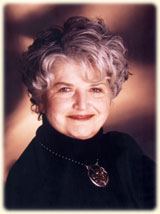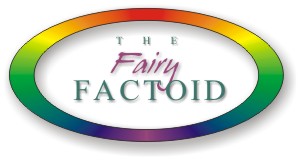This edition of the newsletter is
all contributor written and features an array of talent and
perspective. It is truly representative of glbt writers braving the
market place and sharing their insight and advice.
| Contributors
this issue: Patricia Nell Warren William Maltese (pen name) Brent Hartinger Pamela Hayes Andrew Barriger Cynthia Leitich |
 Patricia Nell Warren's work is legendary,
beginning with The
Front Runner in 1974 and continuing to the present with The Wild Man.
She is a tireless advocate of glbt issues and a mentor to many writers. Patricia Nell Warren's work is legendary,
beginning with The
Front Runner in 1974 and continuing to the present with The Wild Man.
She is a tireless advocate of glbt issues and a mentor to many writers. |
 Brent
Hartinger's first novel to be published is Geography Club,
which will be followed quickly by three more. In this issue he writes
about getting published and the power of the word "No." Cynthia Leitich
interviews Brent on the inspriation for Geography Club. Brent
Hartinger's first novel to be published is Geography Club,
which will be followed quickly by three more. In this issue he writes
about getting published and the power of the word "No." Cynthia Leitich
interviews Brent on the inspriation for Geography Club. |
||||||
 P Pspotlight on a white character." Find out why in this issue (page 2). |
 Andrew Barriger continues his humorous column, The Fairy Factoid, in this issue which, this time, has absolutely nothing to do with writing or books. But that's all right, because I've already said that the content of this newsletter is at the whim of the editor. But next issue, we'll hold Andy's feet to the fire. |
William
Maltese majored in Business/Advertising, served to
Sergeant rank in the U.S. Army. Under various pseudonyms, he's
published over one hundred books in genres that include erotica,
sci-fi, science-fantasy, adventure-espionage, romance, and mystery. His
work has been translated into six foreign languages. He presently
resides in the Pacific Northwest. In his article in this issue, Mr.
Maltese conducts a very interesting experiment. See below:
|
||||||
| From
her series, The
Secrets of Writing and Publishing PATRICIA NELL WARREN tells others ... How To Look For A Gay Fiction Publisher © Letter to a reader Where should your friend send a fiction manuscript? That's not easily answered these days. Gay fiction is having some hard times. I presume your friend has written a gay novel. There is such a huge emphasis on nonfiction right now -- self-help, coming out, politics, etc. -- that fiction suffers by comparison. Most of the gay and lesbian organizations that maintain lists of recommended reading (like PFLAG, GLSEN, etc.) ignore inspiring fiction books in their subject area. Many gay film producers aren't interested in optioning fiction books. Many gay publications don't regularly review books, or they ignore books altogether in favor of focusing on entertainment. Gay and lesbian publishers are diminishing in number, and Alyson, the biggest, can publish only so many books. Among big mainstream houses, the waning popularity of midlist means a waning of gay fiction, because gay books are essentially "midlist" (meaning they don't sell in the Harry Potter class). The midlist crunch has meant that some well-known gay fiction writers, like Felice Picano, no longer have a mainstream publisher. Picano is now with Alyson. Continued (page 3)
|
|
The
Great
Publishing Test: Traditional or Print-On-Demand? (c) 2003 by William Maltese
I've just had two glbt books
simultaneously released. SS MANN HUNT a Publish on Demand novel and
THAI DIED: A STUD DRAQUAL MYSTERY by conventional publisher Green Candy
Press. Affording, an interesting opportunity for ongoing comparisons as
the books proceeded side-by-side, and continue to do so, through the
publishing pipeline.
(Continued page 2)
If you would like to submit material contact Ronald L. Donaghe |
||||||
 by Andrew Barriger Sometimes it’s the darndest things that set us to thinkin’ here at the Fairy Factoid. Today is a perfect example – your fearless reporter was driving home along I-75 in Troy this afternoon (that’s in the Detroit area of Michigan), when he observed a broken down car on the right side of the road. In and of itself, that’s not particularly fascinating, but then, on the other side of the road, was a broom. A finger-snap and one bright, shiny light bulb later, the hyperbole was obvious – a broken down car and a broken down witch’s broomstick. That pretty much did it – we had this week’s topic! So, we phoned up Colin and gave his team their assignment: determine the history of the floating broomstick! Colin was, of course, still in England, since Colin never does anything fast, so he was in a perfect position to learn more about broomsticks. A floating broomstick must surely be a gay invention – but what purpose was it designed to serve? The team, as always, elucidated their list of criteria:
|
So
away went Colin, Daniel, and the rest, mission afoot, as it
were.
With stalwartdetermination, Colin made inquiry of
the
local pub manager, whom he had befriended days (and nights) before, to
learn
who might be able to answer his questions about the origins of floating
broomsticks.
The proprietor thought it an odd question, but sent them to another
establishment, this time on the West End, on the condition that it not
be named under
any circumstances. Colin led the charge and the team went to the
nearest Underground station, bound for Piccadilly Circus. Three beers and a “fruity drink” later (Daniel doesn’t like beer), the clues flowed as readily as the alcohol. In ancient times, it was explained, poor witches who couldn’t afford horses carried a broomstick or other pole to aid in vaulting over streams. As part of their initiation rite, they were blindfolded, smeared with an ointment that made them feel as though they were flying, placed on their broomstick, and told they were “flying over land and sea.” The team was dubious, but they had learned several important clues. The witches were of Saxon origin, and Saxony was part of modern day France. They had peculiar initiation rites and involved ointments and blindfolding. The team referred back to their list. Yeah yeah yeah, it floats. But, it’s ridden by a hag and used for cleaning – surely, that must tie in somehow with the new clues. Intrepid and valiant (and slightly sloshed), they boarded a Eurostar train, destination: Paris. Gay Paree, Colin assured, would hold the key. (It’s a sure sign Colin is lit when he starts rhyming.) |
Four
hours and one time zone later, the team pulled into the Paris Nord
station.
After rousing Colin, they made their way to EuroDisney, which they knew
to be a secret front for the company “Le Fabricant National de
Broomstick
de France.” Continuing their quest to wine and dine their way
across Europe on the Fairy Factoid expense account, as only a crack
team of gay reporters could, (€600 foi gras dinner and three bottles of
the house specialty wine), they had their answer, recounted by the old,
rather scary woman
who had served them: The ancient Saxons, progenitors of modern
day
Parisians, had prevailed upon their gay members to make all of the
broomsticks
float. None but witches could reach them. It is for that
reason,
to this day, the “most romantic city in the world” also carries with it
the stigma of least tidy. Luckily for them, we didn’t see a broken down soap hauler… The Fairy Factoid is extensively researched and painstakingly presented by Andrew Barriger, author of Finding Faith and the occasional news story. Neither the author nor the editor are responsible for any factual errors that may be contained herein, especially as related to the made up stuff. The Fairy Factoid will continue. Next time it just might have something to do with literary inspiration. But then, you never know. |
| Home • Newsletter Archives • Article Archives Page 1
|

